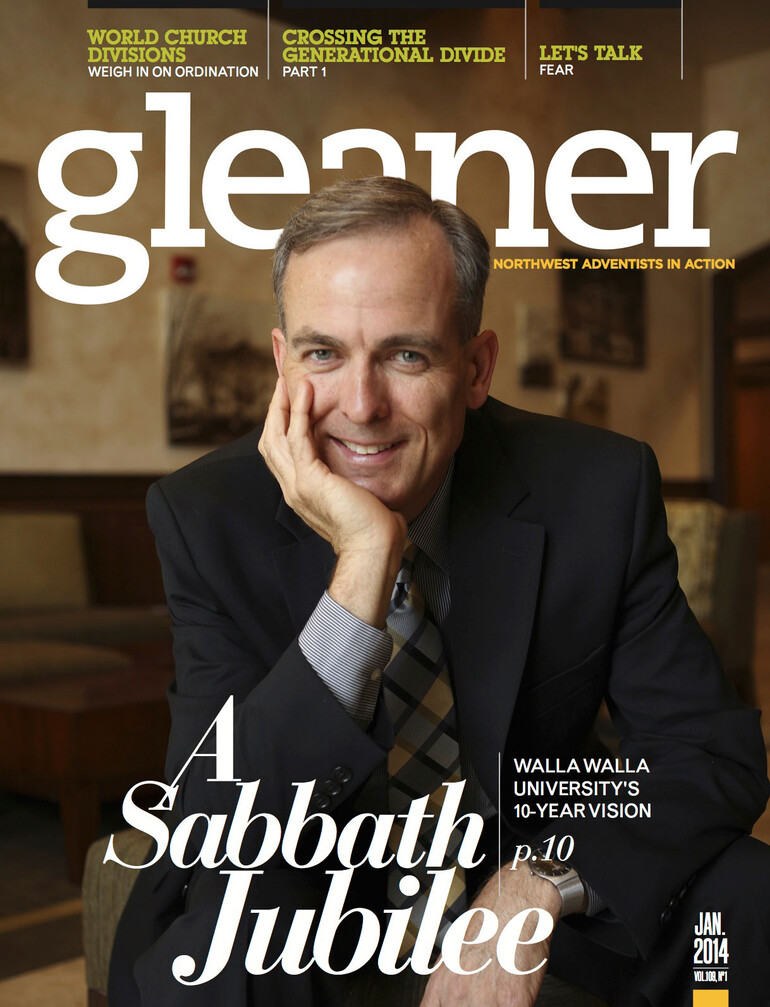At the end of each week I enjoy tormenting my type-A, goal-oriented personality with the question: What did you accomplish? What makes this sick practice worse is when I can vouch for myself that I was busy — but cannot remember specifically what I did. It’s not like I wasn’t there — of course I was. I remember feeling stress, paperwork, writing, people and a lack of sleep — so what do I have to verify my productivity?
Humanity has invented a tool to aid in the quest to eliminate this feeling and keep ourselves in front of the rat race: the list. This heaven-sent miracle is so marvelous people become obsessed with them, addicted to them and compulsively create them whenever we have the chance. We have guest lists, wish lists, playlists, contact lists, bucket lists, top 10 lists, honey-do lists and Craigslist. Matter of fact, when someone is unproductive and purposeless, we say they are “listless.”
Our culture prizes productivity so we have fast food, Jiffy Lube, expressways, express checkout, automatic bill pay deduction, convenience stores, high-speed Internet, instant coffee, instant oatmeal, speed dating — we even wear clothes with names like “shorts,” “briefs” and “Speedo.”
We feel guilty for not working when we are sick; we will push our cars despite the gas/oil light coming on — better to risk having it run out than risk running late, right? Thankfully, most of the time we can blame our unproductiveness on other people — and when it comes to being inconvenienced there is one demographic that slows us down more than any other — the elderly.
The Inconvenience of the Elderly
When we are cruising along the highway and we find ourselves in agony behind a putzy driver, we start looking for the white/blue hair that barely reaches over the dashboard as we pass by. Especially galling are the Corvettes being driven by a geriatric at 45 mph. When we have sore muscles we say we are “getting old,” and when our memory slips away we experience a “senior moment,” and when someone moves slowly we label them “grandpa” or “grandma.”
In a church setting the young becoming flustered as they have to explain technology to the gray hairs, or wait for the cautious ancients to fork over the money so updates to the aesthetics can be made, or simply listen to the old stories they keep repeating while we could be out creating new ones.
Separation
Outside of church we create separate communities for them, remove their driver’s licenses, medicate them, isolate them and hire people besides us to look after them. They become the victims of scams, abuse and loneliness. Each year 2.1 million elderly are abused, and 90 percent of institutions are understaffed. And while assisted living and medication might be necessary in some cases — abandonment isn’t.
God’s View
In Exodus 20 we find the list of Ten Commandments. The Decalogue comes right after the fleeing of Egypt. It comes in the midst of a people on the move. The exodus from slavery was swift and decisive once the Pharaoh’s firstborn died. They were chased by chariots through the Red Sea followed by a great battle against the Amalekites — not an activity for the slow or the weak. In Exodus 19:5–6 God speaks of the covenant He will establish with Israel, then He gives them their rules of conduct.
The fifth commandment is the first dealing with human relationships: “Honor your father and your mother, that your days may be long in the land that the LORD your God is giving you” (Exodus 20:12, ESV). This is a text typically used to compel obedience in small children — however we have to be careful not to project a 21st-century nuclear American family, with its minivans and daycare onto the ancient world.
The normative family was patriarchal and extended. The older fathers would release authority to the younger father to make decisions and exercise authority on behalf of the family to relate to the larger community and care for the elderly. The primary application of the fifth commandment is to young adults and how they lead the older generations. After all what were they when God delivered them? Helpless slaves.
God brought them out of that oppressive place, led them to a promised land, and He tells them, “I did not remember you so that you could forget each other.”
The fifth commandment was given to all generations to learn how to share leadership in one community — not kids leaving the old folks in a retirement community or the elderly leaving the young in their online community. This commandment calls for mentoring, discipleship and trust between generations — multiple generations moving as one.
God cares more about community than convenience.
Read "Crossing the Generational Divide, Part 2" from the February 2014 issue.












